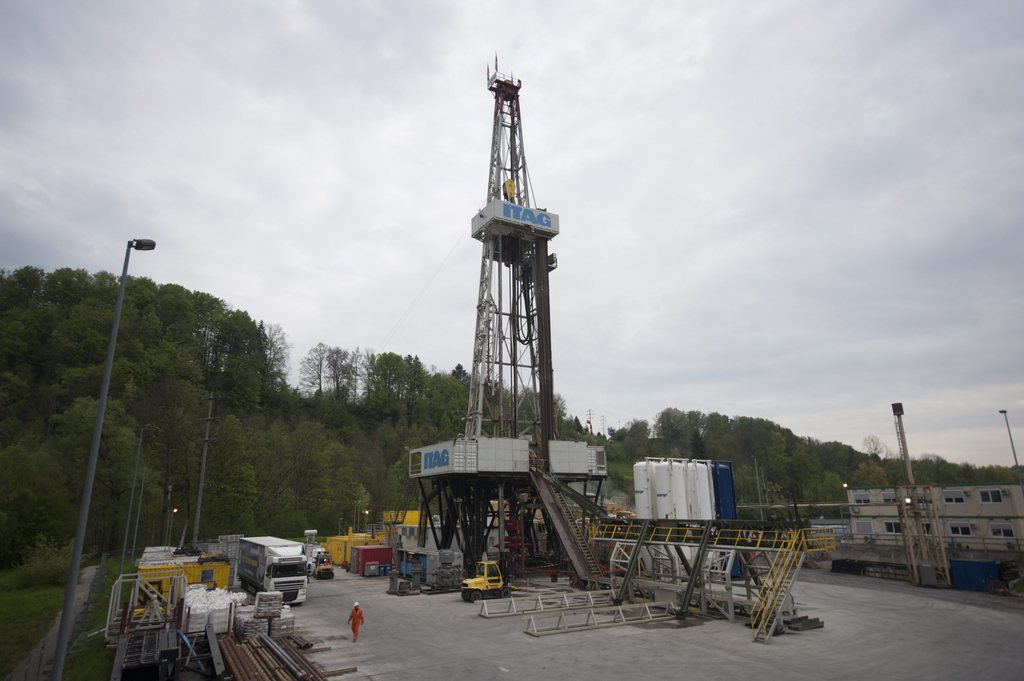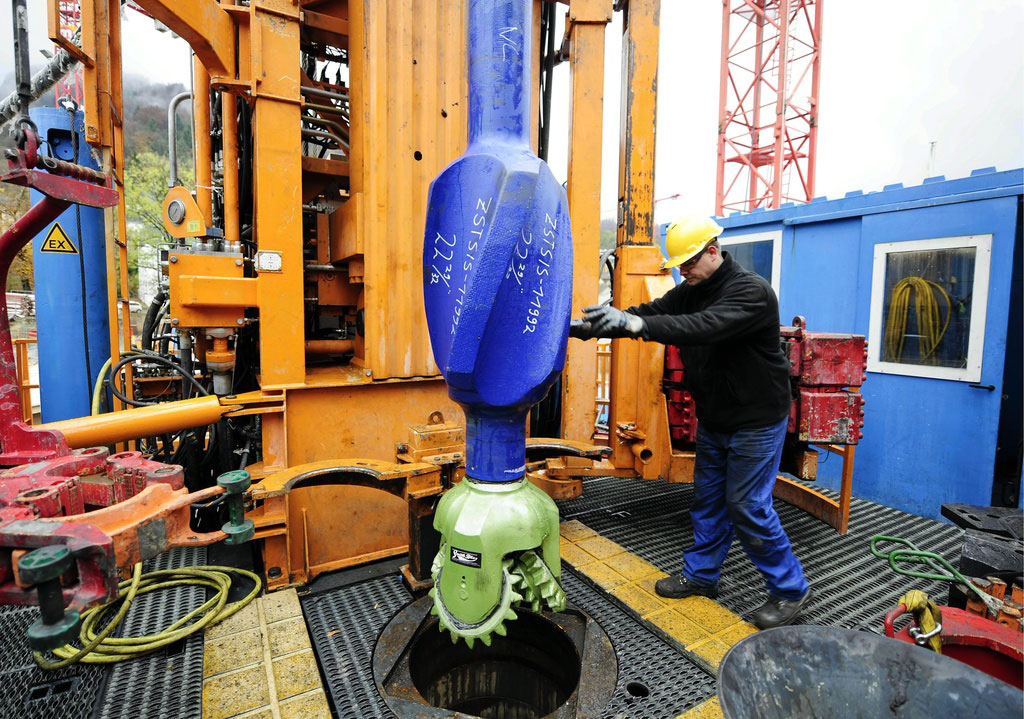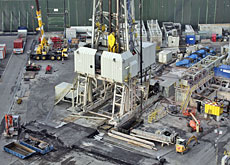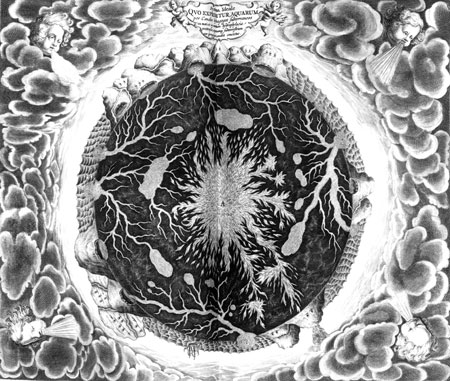Aftershocks follow quake in St Gallen

More than 25 minor aftershocks were recorded and 20 reports of damage were filed in the two days following Saturday’s magnitude 3.6 earthquake in St Gallen. The quake was caused by a geothermal drilling project, which has temporarily been halted.
“The damage reported ranged from a toppled vase to a crack in a façade,” according to Roman Kohler, media spokesperson for the city of St Gallen.
The future of the project is uncertain. A crisis team was called in to stabilise the drilling hole, with further material being pumped into the fissures 4,500 metres below the surface.
The pressure in the hole had abated by Monday, according to a press statement released by the city of St Gallen on Monday afternoon. The project’s coordinators hoped to be able to analyse the situation by the end of the week.
In an interview published Monday in the Tages-Anzeiger newspaper, Domenico Giardini, professor of Seismology and Geodynamics at Zurich’s Federal Institute of Technology (ETHZ), called for more geothermal research and testing, in spite of the fears raised by the earthquake.
“It would be tragic if we failed to tap the enormous reserves of energy under our feet,” he said.
The earthquake early Saturday morning was felt across a large area of eastern Switzerland from St Gallen to Appenzell. The epicentre of quake was registered at a depth of four kilometres. The shaking was directly related to test measurements and simulations for the drilling of geothermal power plant project in St Gallen, according to the Swiss Seismological Service (SED), based at ETHZ.

More
Earth-shaking energy project cleared in court
Drilling projects
The project, which was put on hold following the quake, is the largest of its kind currently underway in Switzerland.
Domenico Giardini called for national coordination and monitoring of the country’s geothermal projects.
The goal of the geothermal drilling project is to find hot water (140 degrees Celsius) at about 4,500 metres deep that will supply half of St Gallen’s buildings with energy. The seismological service installed ten measuring stations around the drilling area to monitor seismic activity, which they expected to be weak but consistently present.
An engineer working on the project told the Swiss News Agency that the drilling team encountered high-pressure gas while preparing to drill at a depth of more than 4,000 metres. They then flushed the gas out of the hole with large volumes of water and drilling mud, which may have contributed to the quake.
In Basel, drilling was stopped in 2006 in a similar project because of the risk of seismic activity. The project was eventually called off in December 2009 following a series of earthquakes, the largest of which registered 3.4 degrees on the Richter scale.

In compliance with the JTI standards
More: SWI swissinfo.ch certified by the Journalism Trust Initiative


You can find an overview of ongoing debates with our journalists here. Please join us!
If you want to start a conversation about a topic raised in this article or want to report factual errors, email us at english@swissinfo.ch.